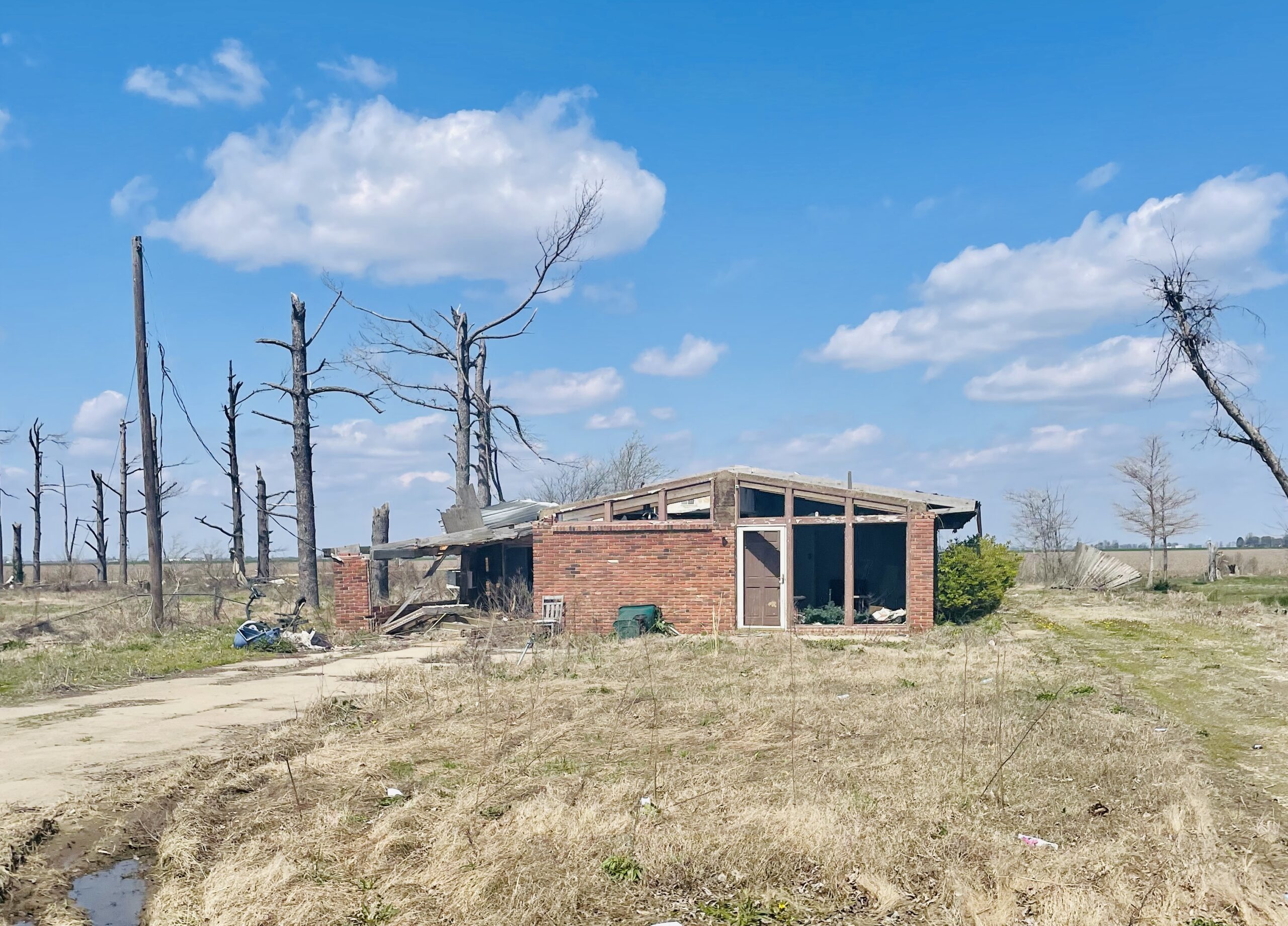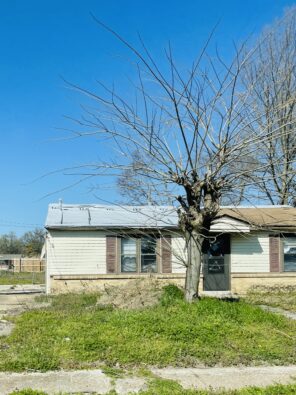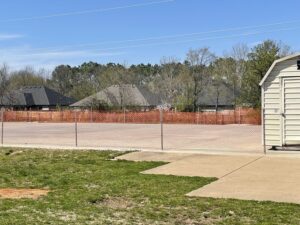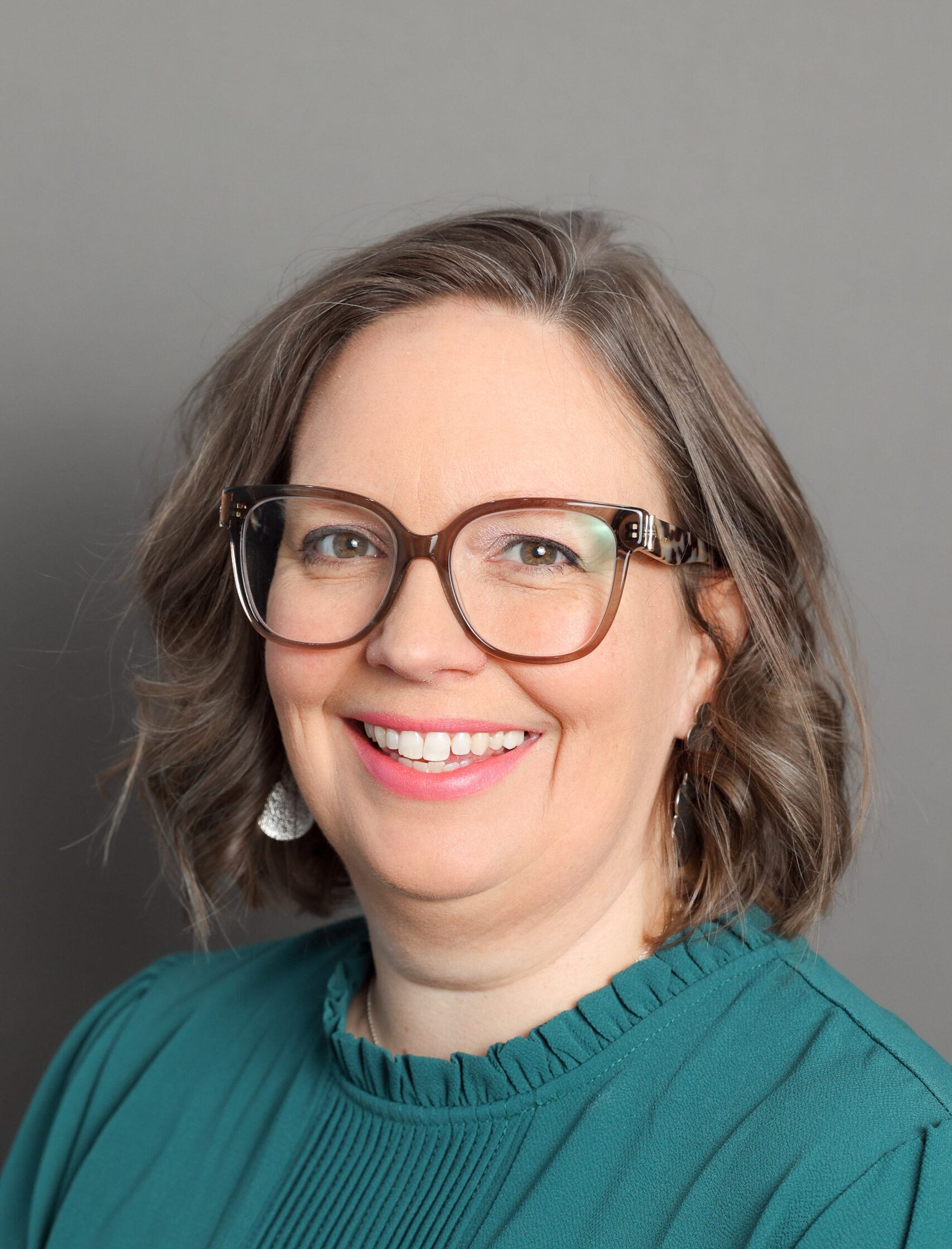Sixteen months later: A look at tornado recovery in Arkansas

In late March, I left snowy, unseasonably cold North Dakota and visited four grantee partners in Arkansas. While in the communities of Trumann, Leechville and Springdale, I saw evidence of and heard stories that affirmed why funding to support long-term recovery is essential. In some cases, the repair and rebuilding of homes is near completion, but psychosocial, emotional and mental wellness needs remain. In other cases, we drove through neighborhoods with vacant houses, debris that had yet to be cleaned up, and physical recovery that had yet to begin. Long-term recovery looks different in each community, and funding organizations to support staff leaders to continue recovery efforts is critical.

In Trumann and Leechville, Arkansas, I sat in on two long-term recovery group (LTRG) meetings. During these meetings, I heard stories of families, 16 months after the tornado had destroyed their homes, still trying to navigate insurance and FEMA. Households that had replaced tarping on roofs multiple times were waiting for assistance with paying for construction. I heard stories of older adults who lost the stability of living in a nursing home close to family and visitors and were now living in a house farther away, waiting for new accommodations to be built. We drove through neighborhoods where large sheets of metal still hung high above, precariously wrapped around tree branches, and discussed the safety of children.
Thankfully, there were also hopeful stories of families that have returned home because the LTRG worked to coordinate funds, volunteers and materials. And more help is coming from volunteer groups arriving soon to help with construction and debris removal.
In Trumann and Leechville, CDP grant funding from the Midwest Early Recovery Fund and the Disaster Recovery Fund supports a disaster recovery coordinator through the Old Community House Foundation and a disaster case manager through The Salvation Army of Arkansas-Oklahoma. These two grantee partners are working to address ongoing needs, and we anticipate that recovery will continue into 2024. Some conditions remain similar to what they were days after the tornado, like coordinating debris removal and navigating complex insurance and federal and state assistance systems. Without long-term recovery efforts, vacant, destroyed houses and debris piles will continue to be safety hazards for neighborhoods with children and economic concerns for communities struggling to survive.

In Springdale, I visited Child Care Aware of NWA and the Arkansas Coalition of Marshallese. The tornado that impacted occurred in late March 2022. Residents in this under-resourced area continue to work with landlords and social services to repair their homes. One of the elementary schools lost its gym, and the teacher continues to teach physical education outside in a small area. The gym, which also previously served as the school’s safe room, won’t be replaced until late 2024. We sat in silence in front of the now-gone gym, imagining the horror of what might have been had the tornado happened during school hours; and trying not to contemplate the severe weather predicted in the next couple of days. Where would these teachers take their students for safety if something happened during school hours?
The most significant need in Springdale was not disaster case management or rebuilding homes, but mental and emotional support. We are addressing this by supporting the childcare providers with a behavioral specialist. The pandemic layered with the tornado, has led to an increase in concerning behaviors among children and an increase in the need for support for teachers, childcare providers and parents. The specialist is helping providers across the region address psychosocial needs and connect with each other. For the Marshallese residents of Springdale, a disaster recovery coordinator meets the need of helping those families that have not returned to safe homes and planning for future disasters. This work is just starting, and I am excited to see how the community will be strengthened because of the work of these two organizations.
In each of these communities, we made grants that supported a staff position, allowing the organizations and communities to meet needs as they emerge. I left my last meeting in Arkansas incredibly grateful for community-led recovery efforts and the leaders that work daily to strengthen their neighborhoods, schools and businesses. I am thankful for the chance to see, once again, that when we take a long-term view and work with the community to understand the needs as they change over time, we can build better pathways for equitable recovery.
I returned home on March 30, grateful for the opportunity to meet with grantee partners and experience their communities and work. On March 31, a devastating storm produced tornadoes that impacted multiple states, including Arkansas. One community, Wynne, is just a few miles from Trumann. Our grantee partners in Trumann jumped in to assist with response and share the lessons and resources learned. They will continue to help with recovery for as long as needed, and we will continue to support them and communities across the region as they begin and sustain recovery efforts. Over the following weeks and months, we will work to identify local organizations beginning recovery efforts that may need additional capacity, training or other resources to develop and sustain long-term recovery operations and will seek to partner with them.
